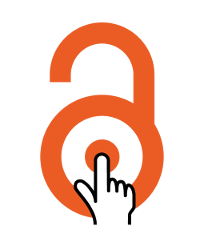 Open Access Button press release, Link, CC-BY
Open Access Button press release, Link, CC-BY
Joseph McArthur, +447732634892 | media@openaccessbutton.org
London, England. The Open Access Button today launched a suite of new apps to help researchers, patients, students and the public get access to scientific and scholarly research. People use research everyday to create scientific and medical advances, understand culture, and fuel the economy, but articles can cost $30 or more to read each, even though much of the research is funded by the public in the first place. The new apps are available both for mobile phones and web browsers and can be downloaded at openaccessbutton.org.
“I wish there had been a tool to help me access the research I need as university student”, said David Carroll, co founder of the Open Access Button and a medical student at Queen’s University Belfast. “I couldn’t afford to pay for all the articles I needed and ultimately I couldn’t continue my research. We built the Open Access Button so other students wouldn’t experience the same problem”. Joe McArthur, co founder of the Open Access Button and Assistant Director of the Right to Research Coalition, said “The Internet gives us the chance to make research available to everyone who needs it. We must seize this opportunity if we’re going to continue to innovate”.
The Open Access Button helps users find free, alternative, but often hard to find, copies of research they otherwise couldn’t afford. When a user searches for a research article, the Button app first checks for a free copy, and if one isn’t available, it automatically employs a number of novel strategies to make one available including contacting the author. Users also have the option to share why they are seeking a particular article, which creates an interactive map of people who need research around the world.
The new apps build upon a successful beta released last November that attracted more than 5,000 users and tracked almost 10,000 instances where people were denied access to research.
The new apps were built with a dedicated volunteer team of students and young researchers, and the invaluable help of an international community who were responsible for building, funding and designing them.
The launch of the new suite of apps is taking place during International Open Access Week, a celebration of a new form of academic publishing which allows free, immediate online access to peer-reviewed research with full rights to reuse the work. The live streamed launch will be hosted by Jisc in London. It will lead to other events showcasing the Open Access Button across the world throughout the week, including events in Europe, Africa and the Middle East. The new app was also showcased during the Open Access Week Kick Off event at the World Bank headquarters in Washington D.C. It is expected that messages about the Button’s launch will reach more than one million people on social media alone through a Thunderclap.
The Open Access Button will be used to support data driven campaigns and tell stories to support Open Access and fix the long-term issues that stop people getting the research they need.
“Tools like the Open Access Button can help catalyse change and create a world where science has more impact, is more efficient and importantly available to everyone”, said Professor Randy Schekman, the 2013 Nobel Laureate in Medicine or Physiology.
Follow the conversation on Twitter at and #buttonlaunch.
Background: The Open Access Button was developed in partnership with Cottage Labs LLC and with funding from the Open Society Foundations, Jisc, Mozilla Science, PLOS and 68 individual crowd funders. It is an initiative of Medsin, the UKs student global health network tackling global and local health inequalities through education, advocacy and community action. The Open Access Button is also a project of the Right to Research Coalition, an international coalition of organisations educating and advocating for Open Access.
More information about Medsin and the Right to Research Coalition can be found at www.medsin.org and www.righttoresearch.org.
More information on Open Access is available at: http://sparc.arl.org/issues/open-access




